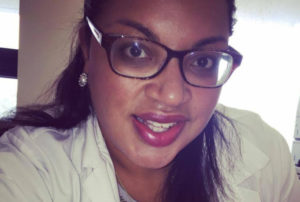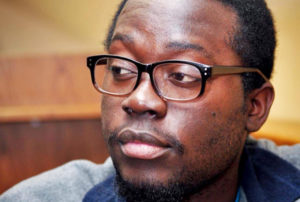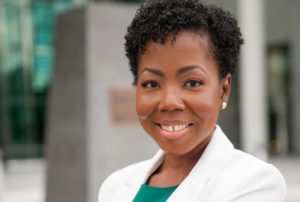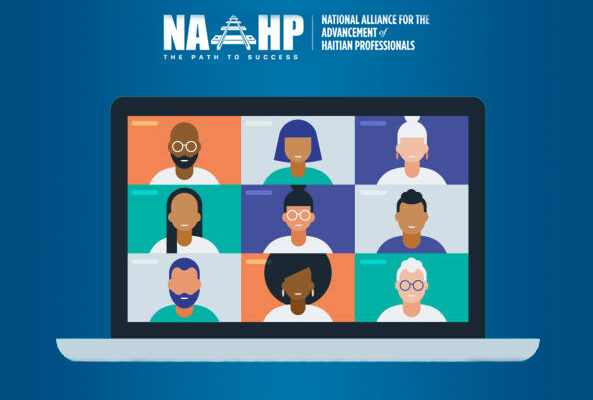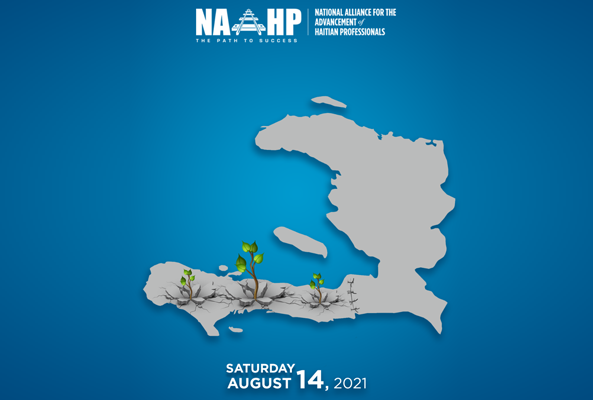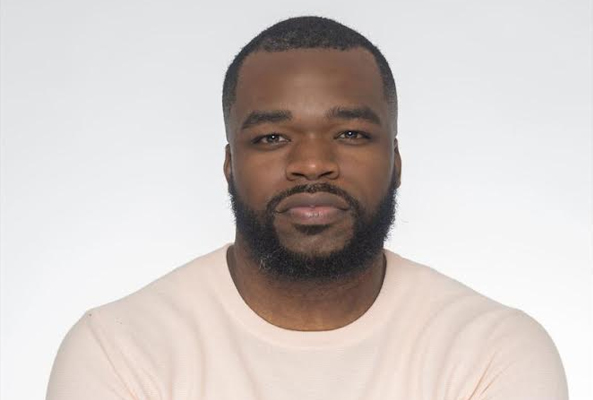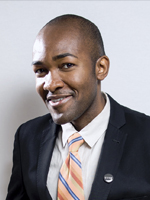
Ciano Clerjuste
Mr. Ciano Clerjuste
President and Chairman of United Colors Of Fashion (UCOF
What is your occupation and academic background and how did you come to work in this field?
I am currently the President and Chairman of United Colors Of Fashion (UCOF), a one-of-a-kind Fashion philanthropic organization, which has links with the fashion networks – from top modeling agencies, super models, world renown producers, artistes to top designers with the main aim of supporting the less privileged globally through fashion. We have teamed with great established and successful fashion designers from all over the globe with one purpose in mind – to associate great fashion with charitable causes.
My educational background spans across a wide range of facets – dance, business, film, fashion and arts. I have eighteen years of valid experience in these fields. I have received extensive training garnered from Alvin Ailey American Dance Theatre, Newark School of the Arts, and New York Conservatory of Dance.
I hold a Bachelors of Science in Business Administration and Management from Bloomfield College -and have been an Account Executive for Principal Financial Group, a Retirement & Global Asset company for the past eight years. With my eye still on furthering my education and completing my Masters at New York University, I double as a freelance Interior Designer and a much sought after High-end Event Planner for private clients.
As a child growing up in Haiti and being a part of the performing arts, did the outlet help you overcome your surroundings?
I started dancing at age 12 at Une ecole Nouvelle de Danse de Port-au-Prince, and at the time, my mother, sisters and aunt were always very supportive of me. The arts were certainly a huge outlet to help me verbalize anything, which I was not able to express and it served a huge comfort.
How was your family able to provide you the opportunities that you had growing up?
Growing up in Gonaives, my siblings and I were very fortunate. My mother, Ms. Marie Joasil worked extremely hard to provide us with the best life, and ensure we attended the best schools, and always had food on the table, unlike most of our friends and neighbors. We never knew what it was like to go hungry, or not having school supplies or uniforms.
Sadly, when we moved to New Jersey in 1996, all of that changed, and we began to learn a life we never knew. Six months after I moved here at age 17, my mother was hit by a car in New Jersey, which left her paralyzed from the waist down – shortly after, my father died. After the tragedy, I had to raise my eight year-old sister. While attending school full-time, I had to work full-time to take care of my younger sister, mother and myself. During these trials and tribulations, I began to give life a new meaning and learned to practice faith fully while trusting in God- and build a special relationship with my sister, which today the two of us are inseparable and love each other. Each trial in life happens for a reason, and it make us stronger.
When my mother got out of the comma, she made my sister and I promise to stay in school and get a four -year college degree despite the struggles ahead. Today we have both fulfilled that promise, and mother was able to attend both graduations on a wheelchair with great pride. My sister, Eramene Clerjuste and I give gratitude to our mother for most of our accomplishments.
Did you have any stage fright or do you believe that you have always been a natural?
Believe it or not, am naturally a very timid person, and most performers are. However, my talents are natural. Hence, the moment I get on stage, I get into character, and automatically become a different person, and all my fears go away.
Who were your influences as a child performer?
As a child, I was never influenced by anyone, except for my astonishing mother. She always taught me to be myself, and constantly built my confidence, and reminded me of the God given talents I have.
Was it difficult transitioning into an adult performer?
The transition was seamless and very natural. I have always been getting training, and staying on top of my techniques and body.
What was it like starring in such productions as The Kreyol Boys, Descent and Love Around the World?
Each production brought a different experience to my life, and allowed me to work with a diverse group of people from all over the globe, which I love very much. The directors from each production were different, and artistically talented. However, I treasure most of the experience to working in Love Around The World, for a plethora of artistic reasons and lifetime memories.
What was the process behind your decision to earn your degree in Business Administration and Management?
It was one of the hardest decisions I have ever had to make in my life. I taught myself how to sew at a very young age, and was good at making dresses. I also had a few mentors. My goal was to either get a degree in fashion design or dance. I wanted to be a successful fashion designer or Broadway performer. After mother’s tragic car accident, I had to make a decision to either become a registered nurse or doctor in order to put food on the table for my family, and not struggle like other artists and designers with a very short career. When my mom was in a very critical life threatening stage, I confided in my advisor about what was happening in my family. When my school advisor learned of the family tragedy, and how I had to work full-time while in school to take care of my family, she told me about the competitiveness in fashion, and how artists struggle. I listened, and ended up changing my major to Business Management.
I remember walking out of the office in tears, and spent the entire day in solitude thinking about all of my friends in High School and dance classes who were able to go to Julliard and Fashion Institute Of Technology (FIT) to follow their dreams, and here I was the only one out of the group without a mother and father to assist me, and I had to major in something just for money. Shortly after college, I started working at Principal Financial Group, and made my way to the top. Today, I do not regret selecting business management at all, as the skills have helped me tremendously to do my jobs well at Principal and UCOF. Am able to do much in life I have ever wanted to do – if not more.
How did United Colors of Fashion (UCOF) come about?
Growing up, my mother taught me and my siblings to always share everything we had, and be nice to everyone because you never know where you’ll end up in life. I have carried that legacy with me. l made a promise to myself during my teenage years to help those less fortunate and in need – the same way I was raised by my parents.
During my mother’s tragedy, a lot of people helped my sister and I, and that calamity made it clear to me that doing charity work was my calling. Little did l know it would end up to what it is today, with UCOF.
In 2010 while doing a charity show at FIT, Veronica Rovegno and I realized the struggle that emerging designers go through on a daily basis, how most of them go out of business after their first collection due to funding, we decided to create an organization unlike no other focusing on amazing talents and social issues. Hence, UCOF was created, and today, it’s a one-of-a-kind Fashion Philanthropic organization with such a great mission.
Today our Charity Care Program focuses on helping children in Soweto, South Africa. Nevertheless, our long-term goal is to extend the program to help HIV infected children in Haiti and other underdeveloped countries. We started in South Africa first because one of our advisors is from there, and wanted to help with the needs we identified.
How have you seen UCOF change and impact lives? Do you believe the foundation is meeting its goals?
I must first explain what we do, in order for everyone to see how we are changing and impacting the lives of those we work with drastically. UCOF, which Vigore! Magazine calls an “epidemic of hope,” is a New York City-based non-profit 501 (c)(3) organization with a mission to educate and mentor under resourced youth about the fashion industry through hands-on training. In addition, the organization provides financial assistance, food, and clothing to children living with HIV/AIDS in South Africa. The organization was founded in 2010 and is supported by an international team of philanthropically minded fashion industry professionals. UCOF’s focus is on improving health and education as the foundation of happy and fulfilling lives. UCOF raises funds for these causes from our annual gala and international fashion benefit, corporate sponsors and generous contributions.
With the funds raised, UCOF organizes internships and educational opportunities for under resourced youth to expose them to the many exciting career opportunities in the fashion industry. In addition, UCOF partners with local philanthropic organizations in underdeveloped countries to help those suffering from HIV/Aids, sickle cell anemia and paralysis.
UCOF is a special organization in a plethora of ways:
- Our fashion education is the first of its kind in the States. Everyone works for the organization for free. For the past three years, I have been working 30 hours or more per week with no pay, and I love what I do for the organization. The work brings me so much joy because it’s close to my heart.
- We run our organization very different than most organizations. We have a 100% model, which means 100% of donations go directly to our programs. Our operating costs are covered by our corporate sponsors, private donors and my family. The first year, I personally donated $32,000.00 to the organization to run the fashion education program in NY. The second year, I gave $23,000.00 – and when I received the “thank you’s” from our students, that’s all that mattered. Giving to this organization makes others realize they want to be part of it because of the time, money and energy invested. This is a cause am so passionate about it and very close to my heart.
We have made an impact in the lives of over 200 youth in New York and New Jersey since inception. We have assisted about 52 children at Mapetla Day Care in Soweto, South Africa. We have provided them with food, shoes, clothes, and most importantly our love, affection and tender care. Most of the children are infected and/or affected with HIV/AIDS. They only get one meal a day from the school. Our goal is to get enough funding to give to the school, so they can feed them three meals per day.
What’s it like now being behind the scenes as President of UCOF and not in front for all can see? Or do you take a very public role in this capacity?
I am a hands-on behind the scene type of a leader, and prefer to keep it that way. I choose to work hard quietly, and the impact I make in the lives of those less fortunate can speak for itself.
It is a lot of work leading this one-of-a-kind 501 (c)(3) organization. However, you must know that this amazing project is made possible because of the amazing people we work with, such as Jan Malan, Sandi Bass, Greg Meyer, Claire Livingston, Lorenzo Torres, Camille Evans, Veronica Rovegno, Juan Torres, Kimberly Magnes, Chicka Chan, Nina Nassera, Scott Wasserman, Andiswa, David Tlale, Shaldon Kopman – and our amazing supporters, Fashion One TV, South African Airways, Lumiere Magazine, Vigore Magazine, Eramene Clerjuste, Carl Nelson, Michelle Travis, Nigel Barker, Pat Cleveland, Sessilee Lopez, Ajak, Dionne Warwick, Devyn, Philipp Bloch, IMG, NY Model Management, Wilhelmina, Muse, Major Model Management, and the list goes on.
What is the biggest challenge of your work?
Depends on which job you are referring to, since I have more than one. For this question, I plan to focus on UCOF. Our challenge is getting enough funding to run our programs, and corporate sponsors to fund our annual fashion benefit. We look for corporate sponsors from all over the world to fund the Annual International Fashion Benefit. Some companies take time to commit, and some give you the run around, which is time consuming. However, when we do find a good company, which believes in education, mentoring under resourced youth, supports the HIV/AIDS epidemic, and sees the marketing value/tax write off we give in return for sponsoring us, we try to hold on to them. People travel from all over the world to our annual gala, and fashion provides excellent marketing opportunities. Sponsoring our annual gala is the greatest beatitude a company can do.
Identify one or two of your proudest achievements?
I have had a lot of proudest moments in my life when I used to perform on stage full-time. However, the most proudest moments of my life took place on March 11, 2013 after distributing food and clothes to children at Mapetla Day Care in Soweto, one little girl looked at me, and said, “Ngiyabonga Tshiamo,” which means “thank you, Ciano.” A few minutes later, a teacher pulled me to the side and said, “Ciano, we appreciate you so much, and we will always remember what you have done in the lives of these children.” I walked out of the school feeling proud, knowing that I had made an impact in the lives of 52 children I truly love and adore. In addition, on March 13, 2013 while doing an interview for GMA in South Africa, the presenter said, “Ciano, the work you do for emerging designers is commendable.” Our Achiever of the Year, Sade Salomon responded by saying, “He is truly an amazing person to work with.” At the end, I came to conclude people appreciate my work, and that makes me very happy.
Where do you see yourself in ten years?
In ten years, I see myself working full-time only for United Colors Of Fashion and leading the organization to huge success with the help of our awesomely talented team, and assisting emerging designers and HIV infected children in more than five countries. We are currently working on a five-year plan, which is to open the first Center For Fashion in New York. The center will be a state-of- the- art building in midtown Manhattan with the following:
- Event space to hold runway shows, presentations, mannequin installations and fashion exhibitions
- Showroom for emerging designers
- Office/studio space for emerging designers who are just graduating from fashion school
- Free sewing classes for low income individuals
- Fashion styling, hair and makeup workshops
- Well equipped work space with all types of industrial machines for emerging designers to use
- Stylish rental studios for casting call/auditions, photo shoot, fitting, filming, etc.
- A chic boutique inside the building where people can purchase custom made clothes by our emerging designers and that will allow us in return to employ back most of the talented interns who have been part of our program upon graduation. This building will be the first space in NY solely dedicated to fashion, open to under resourced youth, the general public, and giving emerging designers a state of the art and well-equipped space to have fashion shows without breaking the bank. Most designers currently go out of business after their first show due to the high cost associated with putting such event together.
What would be your advice to young people who want their careers and lives to have impact?
The fabric of life is freedom. It is imperative for teenagers to select a career, which they will enjoy. If they find fascination and fulfillment in what they do, they will certainly have an impactful life. It is also imperative to get advise from others.
For more information on United Colors Of Fashion or Ciano Clerjuste, please go to: www.unitedcolorsoffashion.org
Business number: 917-266-4171
events@unitedcolorsoffashion.org
Follow @UCOFINC
http://www.unitedcolorsoffashion.org/gallery/
http://www.unitedcolorsoffashion.org/in-the-media/

 English
English Français
Français Donate
Donate Partner
Partner Shop
Shop Login
Login